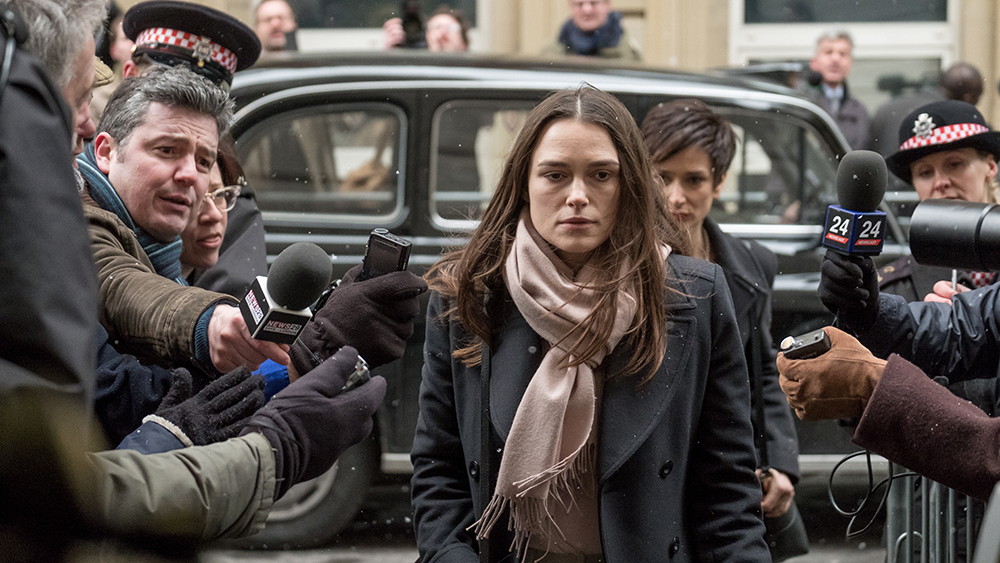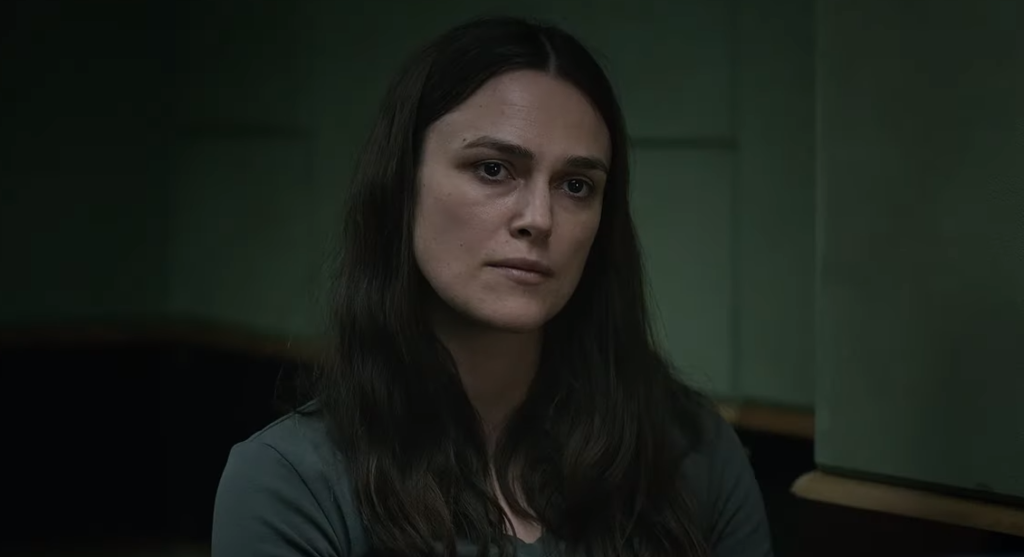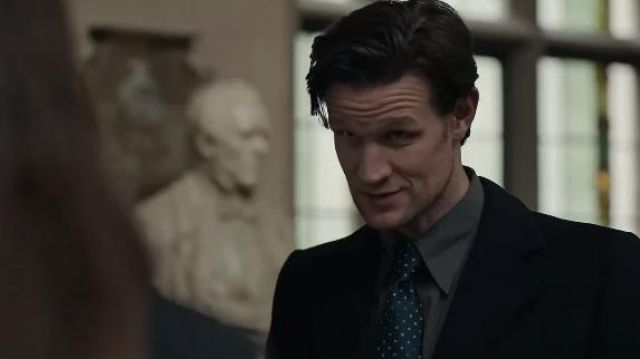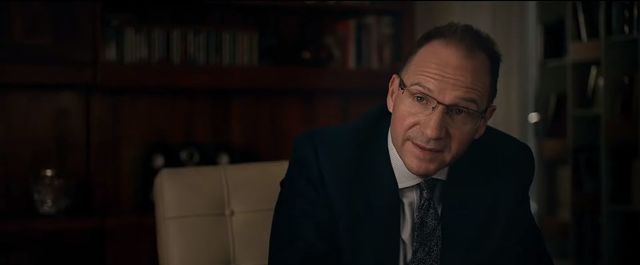
Three days before I saw Official Secrets, the Washington Post released a story that provided new details regarding a previously filed whistleblower complaint, which alleged that President Trump had made an improper promise to a foreign leader. The whistleblower, a member of the intelligence community, had felt compelled to take action because he believed that Trump’s conduct rose to the level of an “urgent concern”, which appears to be spook-speak for A Big Fucking Deal.
The aftermath of these explosive revelations is currently unspooling on various media: newspapers and their online affiliates, with their wide range of clickbait headlines and weary fact-checks; Twitter, with its armchair policy experts and viral memes; and—the President’s primary source of information gathering—TV news programs, with their ranty guests and exasperated moderators. The pages of history surrounding these events are currently being written; movies dramatizing them will surely pop up in the ensuing years and decades. In a less insane, more cinematically karmic world, this ongoing furor might have served as serendipitous marketing for Official Secrets, a movie which—if you can believe it—involves a civil servant in an intelligence agency who blows the whistle on her government after discovering that it’s engaged in illegal activity regarding foreign countries.
That hasn’t happened. Despite a top-flight cast and reasonably positive reviews—and notwithstanding a nigh-incomprehensible degree of topicality—Official Secrets hasn’t even scraped $2 million at the domestic box office in its five weeks of release; it’s likely to have vanished from theaters entirely this weekend, making room for that new superhero movie about the angry clown. Generally, I ignore box-office figures when analyzing a film’s merits, but the commercial failure of Official Secrets is doubly dispiriting. For one, its themes—involving individual rights, governmental malfeasance, geopolitical conflict, and the value of a free press—are deeply resonant in our current national moment; this may be a British production made by a South African director, but it’s the movie America needs right now. And for another, as a piece of finely crafted and sharply performed agitprop, it happens to be very good.

That it’s any good at all is impressive, given that the raw materials on hand are not easily molded into invigorating cinema. Official Secrets may traffic in weighty topics—among other things, it’s about due process, illicit surveillance, and human decency—but while it’s structured like a legal thriller, it is virtually the opposite of an action movie. Consider its inciting incident, which occurs in early 2003, when GCHQ analyst Katharine Gun (a typically terrific Keira Knightley) receives a memo from her American counterparts at the NSA; the memo, which plops onto her computer screen in the form of an unremarkable email alert, announces the U.S. and Britain’s joint mission to compile compromising information on various countries in order to strong-arm them into approving a United Nations resolution to invade Iraq. Alarmed by what she views as a blatantly unlawful directive, Katharine resolves to leak the memo to the press, even though such a breach of her contract is literal treason. Intellectually, this is heady stuff; visually, it means that the most suspenseful scene in Official Secrets involves an office worker copying and pasting text, transferring a file to a zip drive, and retrieving a document from the printer.
Needless to say, enlivening this story—which is sodden with fuzzy acronyms, legal arcana, and historical clippings— is quite the challenge. It’s one that director Gavin Hood rises to with extraordinary aplomb. This isn’t his first time tackling politically loaded material; he previously made Rendition, a leaden depiction of America’s dubious embrace of torture, and his most recent film was Eye in the Sky, a shrill sermon about the ethical hazards of drone warfare. Both of those movies were impassioned but also screechingly manipulative, with Hood’s sheer outrage diluting the force of his message. He’s smartened up this time around, partly by relaxing and letting his actors do some of the work for him; as Katharine weighs her sense of integrity against the potential loss of her livelihood, no moralizing monologue could ever be as persuasive as the crinkle that forms in Knightley’s brow or the hesitation that flashes in her eyes.
This is not to suggest that Hood has mellowed. On the contrary, as Official Secrets unfolds, his anger becomes ever more apparent and acute. The screenplay, which he wrote with Gregory and Sara Bernstein, and which is based on a book by Marcia and Thomas Mitchell, is not interested in seeing both sides. Katharine is depicted as a heroic figure, a woman of unshakable principles, while the forces arrayed against her—including a sneering detective (Peter Guinness), a zealous prosecutor (Jeremy Northam), and her stuffy superiors—are officious, indifferent, and cruel. The story, which begins with Katharine’s momentous leak before turning to her trial for violating the titular act, is the tale of a handful of honorable people attempting to stand tall against mighty foes, pushing into the headwinds of a corrupt bureaucracy and an inflexible system of so-called justice. It’s a movie about a court case, and also about a country warring for its own soul.

It’s a decidedly unsubtle approach, but it plays as powerful rather than strident, thanks to the gratifyingly specific screenplay, whose detail and color erode the idea that Hood is penning yet another didactic morality play. He also broadens his scope beyond a facile “bad government” yarn, focusing in part on the cherished but thorny role of the free press. A good chunk of Official Secrets concentrates not on Katharine’s predicament but on the debate that rages within the wanly lit offices of The Observer, where a dogged reporter, Martin Bright (Matt Smith), gets wind of the leaked memo and resolves to break the story.
Ah, newspapers! Remember those? Taking its cue from recent investigative dramas like Spotlight and The Post, Official Secrets nimbly pivots for a time into an old-fashioned scoop picture, with writers vetting sources and chasing down leads and furiously pounding on keyboards. The scenes at The Observer—and also those across the pond, where one of Martin’s colleagues (a wonderfully brusque Rhys Ifans) engages in some skullduggery while searching for an NSA honcho—are almost indecently fun, even as they explore serious issues like national security and journalistic responsibility. (The ever-reliable Matthew Goode plays another of Martin’s coworkers.) A scene where Martin urges his editor (Game of Thrones’ Conleth Hill) to run the story hums with provocative discourse, while a bitterly funny snafu revolves around the mechanical use of—wait for it—spell-check.
It’s all surprisingly entertaining. Katharine, however, remains the movie’s narrative and emotional center. As her journey proceeds into a Kafkaesque abyss—at one point, she’s informed that she isn’t even allowed to discuss her case with lawyers, as doing so would constitute further breaches of the Official Secrets Act—the film acquires deceptive momentum, hurtling forward from one procedural nightmare to the next. (One thread involves Katharine’s husband, a Turkish Muslim played by Adam Bakri, whose tentative immigration status grows increasingly slippery as her prosecution proceeds; it’s a subplot that would seem gratuitous if it weren’t apparently true.) Yet the movie’s keystone—the tool that transforms it from political to personal—is Knightley’s performance. A highly intuitive actor, she possesses some of the discipline and nuance that Hood lacks, and here she gives Katharine shape and dimension: fiery intelligence, agonizing uncertainty, desperate fear. With each new scene, she grounds the film, spiking Hood’s righteousness with doses of brittle humanity.

It is, as Martin’s editor proclaims, a hell of a story. And while Hood’s aesthetic is largely functional—the most memorable shot comes when Katharine faces a tall and narrow flight of stairs leading to that fateful courtroom, as though she’s ascending to the gallows—he paces everything expertly, which ensures that Official Secrets feels like a movie rather than a homily. It’s somewhat remarkable that a scene as ostensibly dry as Katharine hashing out her legal strategy with a team of innovative attorneys—her chief barrister is poised, eloquent, and authoritative; in related news, he’s played by Ralph Fiennes—will find you leaning forward in your seat, hanging onto every crisply spoken word.
The current leader of the free world chooses his words with rather less care. But while it’s silly to suggest that a movie about the Iraq War could somehow influence the present news cycle, with its whirligig of shocks and incriminations and false equivalencies, the ideas in Official Secrets nevertheless seem important right now, as we inch ever closer to a national reckoning. Art is largely a matter of taste, which is why I’m typically loath to say you should feel compelled to seek out a particular title. Yet in this case, I’m making an exception. As this oddly gripping, spookily relevant movie makes clear, sometimes we have a duty to speak out.
Grade: A-
Jeremy Beck is the editor-in-chief of MovieManifesto. He watches more movies and television than he probably should.
